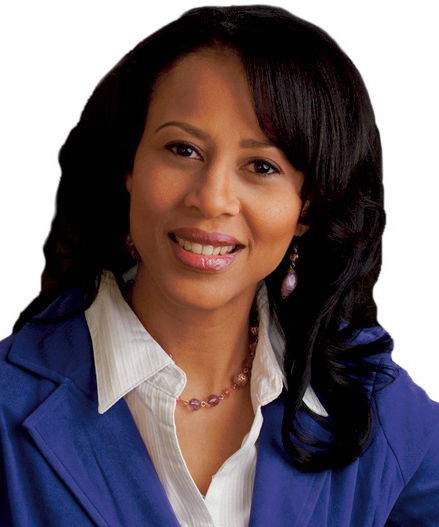DeForest Soaries is a man on a mission. The senior pastor of First Baptist Church of Lincoln Gardens in Somerset, New Jersey, is passionately concerned about something that entangles a large part of the population: consumer debt.
Soaries’ book “Say Yes to No Debt: 12 Steps to Financial Freedom “ is the Color of Money Book Club selection this month. It is a timely choice because many readers across the country have just completed my 21-day financial fast, which required them to give up using credit and cut their consumer spending to only the things they really needed.
Now that they’ve finished, many participants have asked, what’s next? You would be advised to follow Soaries’ program, which he calls “dfree.”
“Consumer debt grips millions of people with plastic shackles every bit as powerful as the iron chains that once bound slaves,” he writes. “A bold, even audacious, statement, I know, particularly considering the historical atrocities of slavery in our country. As a descendant of some of those slaves, I do not make this analogy without recognizing the gravity of its implications.”
As a lifelong loather of all debt, I like Soaries’ boldness to call out a situation that we’ve tolerated as normal far too long.
This past summer, the Pew Charitable Trusts issued a report titled “The Complex Story of American Debt” that explored household debt.
“One of the biggest shifts in American families’ balance sheets over the past 30 years has been the growing use of credit and households’ subsequent indebtedness,” the report said. “In the years leading up to the Great Recession, the average household at the middle of the wealth ladder more than doubled its mortgage debt. Although Americans’ debt has decreased since then, housing — which still is the largest liability for most households — and other debt remain higher than they were in the 1990s, and student loan obligations have continued to grow.”
The jump in the use of debt has not kept pace with household income, according to Pew.
Consider the following statement from the report: “Debt is particularly problematic for low-income households, whose liabilities grew far faster than their income in the aftermath of the recession: Their debt was equal to just one-fifth of their income in 2007, but that proportion had ballooned to half by 2013.”
But despite the many drawbacks of debt, the report concluded that, for younger Americans in particular, “sustainable debt can be a positive force for … economic mobility and financial security.”
How about the unsustainable debt that many are accumulating?
It’s time for emancipation, says Soaries, who admits he too was “enslaved.” He fell into a 15-year cycle of interest and late-payment penalties. It once took him eight years of minimum credit card payments to pay off a $400 sofa. “I was preaching about going to heaven but was heading deeper and deeper into financial hell.”
To get to a place where debt isn’t ruling your life, you have to have a plan. “Financial freedom does not happen accidentally or overnight; it happens as the cumulative effect of consistent, deliberate decisions we make each day,” Soaries writes.
The “dfree” plan consists of four levels:
Get started. You can’t change what you don’t acknowledge. Don’t deny there’s a debt problem. “To be free of deficit living means we live within our means and eliminate the need to close our spending gaps by using high-interest credit cards or, even worse, alternative financial services such as payday loans, pawnshops and rent-to-own schemes,” Soaries writes.
Get control. Would you build a home without a blueprint? To pay off your debts, you’ll need a budget. You have to pull together your financial documents so that you can see where you truly stand. Most importantly, you need to figure out what emotional triggers contributed to your amassing debt.
Get ahead. On this level, you’ll be moving from being behind to saving, investing and estate planning.
Give back. Once you’re free, help deliver someone else to freedom.
In addition to the book, you can find more information at mydfree.org. “My hope is that this book can become your personal emancipation proclamation from financial slavery,” Soaries writes.
Some debt might be necessary, but don’t resign yourself to a lifetime of bondage. As soon as you can, break free.
(c) 2016, Washington Post Writers Group
Talk to us
> Give us your news tips.
> Send us a letter to the editor.
> More Herald contact information.

























